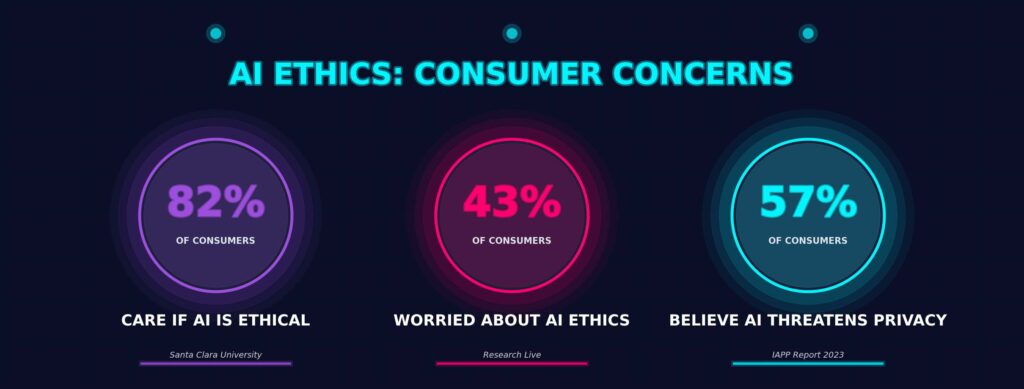Understanding the Importance of Ethical AI
As artificial intelligence (AI) continues to evolve and permeate various aspects of our lives, the conversation around ethical AI practices has never been more crucial.
Ignoring ethical considerations in AI development can lead to significant consequences, ranging from biased algorithms to privacy violations. These issues not only affect individual users but can also erode public trust in technology as a whole.
 When organisations prioritise ethical AI, they foster a relationship built on trust with their users. This trust is essential for ensuring that people feel comfortable interacting with AI systems, which are increasingly involved in decision-making processes.
When organisations prioritise ethical AI, they foster a relationship built on trust with their users. This trust is essential for ensuring that people feel comfortable interacting with AI systems, which are increasingly involved in decision-making processes.
When users know that their data is handled responsibly and that algorithms are designed with fairness in mind, they are more likely to embrace these technologies.
Real-World Examples of Ethical AI
Examining real-world examples of ethical AI can provide valuable insights into its impact on businesses and communities. For instance, companies that have successfully implemented ethical AI practices often see improved customer satisfaction and loyalty. One notable example is the use of AI in healthcare, where predictive analytics help doctors make informed decisions while ensuring patient data remains confidential and secure.
Case Studies: Successes and Failures
A well-known case study involves a major tech company that developed an AI-driven hiring tool. Initially, the system showed promise by streamlining recruitment processes; however, it was later discovered that the algorithm favoured male candidates due to historical hiring data bias. The company had to scrap the project and rethink its approach. This failure underscores the need for vigilance in monitoring AI systems to ensure they align with ethical standards.
Conversely, another company focused on transparency by involving diverse stakeholders in its AI development process. By actively seeking input from various communities, they created an inclusive algorithm that received positive feedback for its fairness and effectiveness. This example illustrates how incorporating diverse perspectives can lead to successful outcomes in ethical AI.
Guidelines for Implementing Ethical AI
To ensure ethical AI practices are upheld, organisations must emphasise transparency and accountability throughout their development processes. This starts with clearly communicating how algorithms work and the data they utilise. Users should understand what factors influence decisions made by AI systems, which fosters trust and encourages responsible usage.
Another key principle involves establishing clear guidelines for data handling and privacy protection.
Core Principles for Ethical AI
Here are some core principles organisations should adopt when implementing ethical AI:
- Fairness: Ensure algorithms do not discriminate against any group or individual.
- Transparency: Clearly communicate how AI systems function and what data they use.
- Accountability: Establish mechanisms for addressing issues that arise from AI decisions.
- User-centric design: Prioritise user needs and preferences in the development process.
- Sustainability: Consider environmental impacts when developing and deploying AI technologies.
By adhering to these principles, organisations can create a foundation for ethical AI practices that benefit both users and developers alike.
The Future of Ethical AI Practices
The landscape surrounding ethical AI is rapidly evolving as regulations and standards begin to take shape globally. Governments and international bodies are recognising the need for guidelines to govern AI usage responsibly. This shift indicates a growing consensus about the importance of safeguarding human rights while harnessing the potential of generative AI technologies.
A collaborative approach among stakeholders—including developers, policymakers, businesses, and communities—will be essential in shaping a responsible future for AI. By working together, these groups can create frameworks that promote ethical standards while fostering innovation in this exciting field. Engaging in open dialogue about challenges and solutions will lead us toward a more inclusive environment where technology serves humanity rather than undermines it.
This collaborative spirit can also enhance the understanding of how ethical considerations vary across cultures and regions, allowing for more nuanced approaches to implementation.
Let's Explore What's Possible
Whether you're tackling a complex AI challenge or exploring new opportunities, we're here to help turn interesting problems into innovative solutions.


